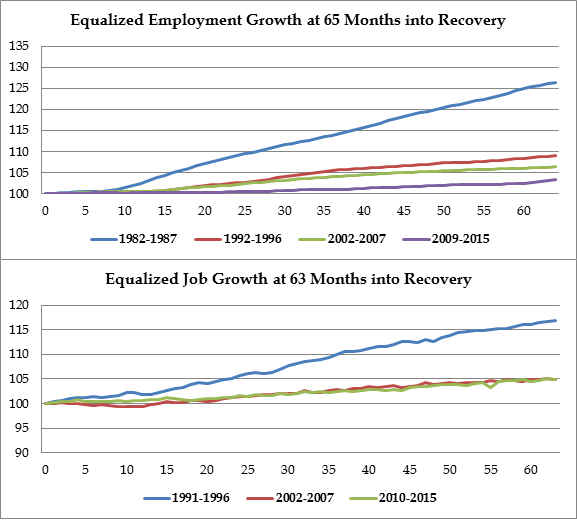Charlie Arlinghaus
August 19, 2015
As originally published in the New Hampshire Union Leader
Much of what you know about the New Hampshire primary is wrong or misleading. Six months before the election seems like a good time to sort out some fact and fiction.
Many Granite Staters like to think that New Hampshire has some inherent right to the primary because we pay more attention, are more involved, and take our job more seriously. The story of the noble activist fighting a grass roots battle is best explored in Dayton Duncan’s wonderful portrait Grass Roots: A Year in the Life of the New Hampshire Primary — sadly out-of-print but available used.
Duncan is now famous for PBS documentaries on subjects like Lewis and Clark but was a sought after Democratic political operative in the 70s and 80s. His portrait, however, is sympathetic to all the citizen activists he follows and, as with the best historians, the reader has no clue to the author’s partisan sympathies.
The motivations of volunteer activists, their joys and their heartbreaks are painted boldly in a story that could be about any election in any state but happens to be about the New Hampshire primary. It is compelling storytelling.
But some of the mythology surrounding the primary is exaggerated. Most activists enjoy the joke in which an old Yankee, when asked about a candidate, says “don’t know, only met him three times.” In New Hampshire, some will boast, we meet and evaluate them all. It simply isn’t true. The vast majority of people never see a candidate in person.
In 2008, in both primaries a total of 519,000 people voted. The activists who attend town halls or bother to leave the house at night to sit through a town hall type event probably amount to only 25-30,000 voters — a scant 5 or 6% of the total. Those people generally see multiple candidates.
Remember how surprised people were that Hillary Clinton beat Barack Obama here? Obama had enormous crowds and Clinton less so. Among the most excited and most active political watchers, Barack Obama generated a lot of excitement. But maybe 90% of the 284,000 who voted in the Democratic primary never went to see anyone. They probably read the newspaper — newspaper subscribers are among the most likely voters — listened to the radio or watched television and then voted.
So when a reporter interviews an attendee at a political event, he’s interviewing a jaundiced member of an over-involved minority. That person’s views are unlikely to be representative of the fabled man-on-the-street.
Most voters will decide very late in the process simply because they, like voters in every other state, are paying attention to the important things in their life and politics is well down on their list.
On the Republican side, we are often told that New Hampshire is a very conservative state. That’s never been particularly true and it certainly isn’t today. The GOP electorate here is quite squishy. In the 2012 exit polls, a total of 47% of Republican primary voters chose to describe themselves as moderate or liberal as opposed to somewhat conservative or very conservative.
That was not the result as some claim of liberals, with no Democratic primary to participate in, crossing over to cause mischief. In fact, in 2008, when the Democratic primary attracted 50,000 more voters than the GOP, the moderate-liberal percentage in the GOP primary was still 45%.
It is also interesting to note that the great moderate hope Jon Huntsman was not their first choice in 2012. It was Ron Paul’s best demographic though he was still second to Romney among moderates.
One remarkable consistency in the primary is the number of candidates. Each of the last six GOP primaries without an incumbent has had 5 or 6 candidates with at least 1% of the vote. on the Democratic side, the same has been true of six of the last seven primaries without an incumbent.
Finally, the winner of these multi-candidate fields since 1988 have finished well under 50% of the vote with the exception of John McCain’s 49% in 2000. Six times the winner had between 36 and 39% but this year’s GOP winner is likely to be closer to Pat Buchanan’s low mark of 27% in a field with six significant candidates.
For some hyper-involved activists, the primary will take on the romantic qualities found in Duncan’s Grass Roots and the experience will stay with them for a long time. For most of us though, we won’t go see anyone in person and won’t pay too much attention until the few weeks. It’s easier that way.

